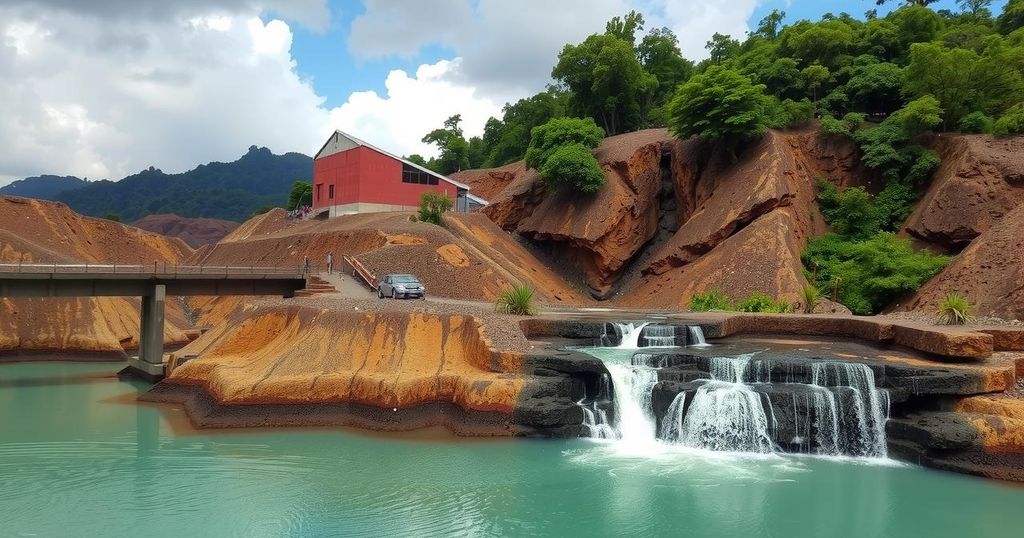El Salvador’s Legislative Assembly approved a new mining law facilitating gold exploitation. President Bukele’s administration aims to enhance the economy, claiming substantial gold reserves but facing strong opposition from environmental activists. Critics express concern over potential ecological damage and doubt the accuracy of the gold reserve estimates. The law allows foreign companies to join mixed enterprises with state participation while promoting environmentally friendly practices, although significant risks remain.
On Monday, El Salvador’s Legislative Assembly enacted a new metallic mining law that authorizes gold mining in the nation. Previously indicated by President Nayib Bukele, this shift has prompted significant backlash from environmentalists who assert that such activities could inflict serious harm on the country’s ecosystem. The legislation facilitates the Salvadoran state monopolizing metallic mining operations and encourages foreign investment in mixed enterprises with state involvement.
President Bukele’s political party, Nuevas Ideas, led the General Assembly to repeal the prior prohibition on mining and utilize the country’s estimated $3 trillion in gold resources to benefit its economy. Bukele contends that it is essential for the state to wisely harness available wealth to enhance the quality of life for citizens, while ostensibly maintaining ecological safeguards. This includes provisions that restrict harmful substances used in mining processes, such as mercury.
However, many environmental advocates, including Andrew McKinley, caution against the potential devastation such mining could cause in El Salvador. McKinley warned that the extraction process might require excessive water and labor, potentially leading to widespread landscape degradation. Furthermore, criticisms have arisen regarding the credibility of the gold reserves claimed by President Bukele. Pedro Cabezas, a prominent figure in the Central American anti-mining organization Acafremin, suggested that the disclosed figures may be inflated, urging skepticism about the data provided by the administration.
In response to these concerns, President Bukele has invited international geologists to assess El Salvador’s mineral potential and extraction prospects, which underscores his commitment to advancing the mining sector despite looming concerns.
The recent legislative change in El Salvador reflects a growing interest in mining as a means to strengthen the national economy. For years, the country maintained a ban on metallic mining due to environmental and social impacts. However, the current administration views this natural resource as a critical asset for economic revitalization, particularly in the context of a struggling fiscal landscape exacerbated by external debts and social needs. Therefore, the new law signifies a pivotal shift towards embracing gold exploitation amidst widespread controversy surrounding environmental concerns and economic data.
In summary, the new metallic mining law in El Salvador presents a significant turning point for the country’s approach to resource management. While President Bukele promotes the economic benefits of tapping into valuable gold reserves, he faces formidable opposition from environmentalists who foresee detrimental outcomes from mining activities. The controversial nature of the law, combined with skepticism surrounding reserve data, suggests that the unfolding developments will be closely monitored by both local and international stakeholders as El Salvador navigates this challenging path toward economic recovery.
Original Source: news.bitcoin.com






